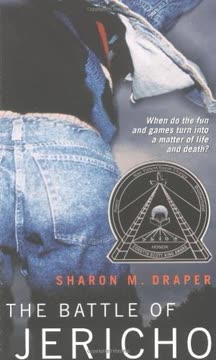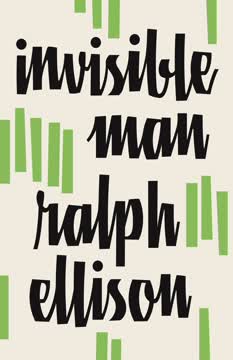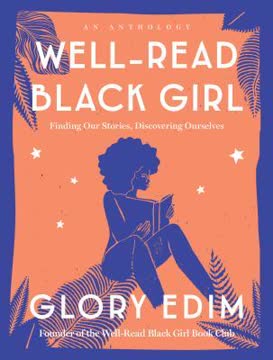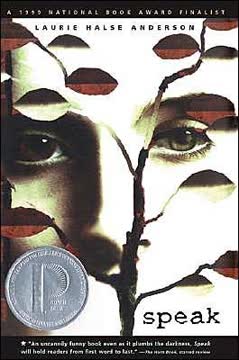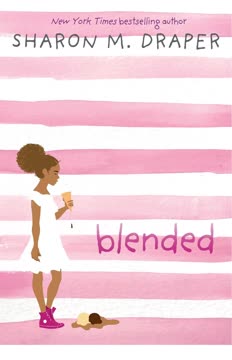Plot Summary
Invitation to Brotherhood
Jericho Prescott, his cousin Josh, and their friend Kofi are ordinary high school juniors until they're approached by the prestigious Warriors of Distinction, a secretive club with a storied past. The invitation is both an honor and a mystery, promising status, camaraderie, and access to exclusive events. The boys are excited, imagining the respect and opportunities that come with membership. Yet, beneath the surface, there's an undercurrent of anxiety—rumors swirl about the club's true nature and the lengths required to join. The allure of belonging and the pressure to prove themselves set the stage for a journey that will test their values, friendships, and sense of self. The invitation is not just to a club, but to a trial of character, loyalty, and courage.
Temptations and Traditions
As Jericho, Josh, and Kofi learn more about the Warriors, they're drawn in by the club's dual image: admired for community service and envied for its parties, power, and connections. The Warriors' traditions are legendary, and the boys fantasize about the black silk jackets and the social elevation they promise. Yet, the club's exclusivity and the whispers of secret rituals hint at a darker side. The boys' families have their own histories with the Warriors, adding layers of expectation and rivalry. The temptation to join is strong, but so is the pressure to live up to the club's—and their families'—standards. The stage is set for a collision between youthful ambition and the weight of tradition.
The Toy Drive Test
The Warriors' first demand is simple: help with the annual holiday toy drive. Jericho and his friends, joined by their female classmates Arielle, November, and Dana, throw themselves into the work, sorting and delivering gifts to needy families. The experience is rewarding, and the club's public image as community benefactors seems genuine. Yet, the boys notice they're being watched and evaluated—not just for their work, but for their attitudes and interactions. The toy drive is a test, a way to separate the worthy from the weak. The line between service and selection blurs, and the boys begin to sense that the real initiation lies ahead, hidden behind the club's benevolent facade.
Dana's Defiant Stand
Dana, bold and unafraid, demands to be included in the Warriors' pledge process, breaking a fifty-year tradition of male exclusivity. Her presence is met with resistance, especially from Eddie, a senior with a personal grudge. Dana's determination forces the club to confront its own rules and prejudices. She outsmarts the system, using a loophole to gain entry, and insists on being treated as an equal. Her defiance inspires some and angers others, exposing the club's underlying sexism and the fragility of its brotherhood. Dana's fight is not just for herself, but for the right to belong and to challenge the boundaries of tradition.
Bonds and Boundaries
As the pledge process intensifies, the boys and Dana are bound together by oaths of loyalty and silence. The club's rules demand absolute obedience and mutual responsibility: "All of us or none of us." The pledges are forced to perform humiliating and sometimes dangerous tasks, from public embarrassment to acts of petty theft. The pressure to conform and not let the group down weighs heavily, especially as the line between right and wrong blurs. Friendships are strained as secrets pile up, and the cost of belonging becomes increasingly personal. The boundaries between loyalty and complicity, courage and cowardice, are tested with every challenge.
The Code of Silence
The Warriors' most sacred rule is the code of silence: pledges must never reveal what happens during initiation, not even to family or teachers. This secrecy isolates the pledges, making it impossible to seek help or question the process. Jericho, torn between his conscience and his desire to belong, struggles with guilt over the club's demands—especially when they cross ethical lines. Teachers and adults sense something is wrong, but the wall of silence holds. The code becomes a prison, trapping the pledges in a cycle of obedience and fear, and setting the stage for tragedy.
Hazing Unveiled
The true nature of the Warriors' initiation is revealed through a series of degrading hazing rituals: forced to wear humiliating shirts, act like dogs, endure paddlings, and perform disgusting stunts. The pledges are pushed to their physical and emotional limits, with Dana singled out for especially harsh treatment. The rituals are justified as "bonding" and "character-building," but the pain and humiliation leave lasting scars. The pledges' sense of self is eroded, replaced by shame and anger. The club's promise of brotherhood is exposed as a system of control and abuse, and the cost of silence grows heavier.
The Price of Obedience
The Warriors demand total submission, forcing pledges to steal, lie, and endure ever more dangerous tasks. The mantra "Are you willing to do anything?" becomes a test of how far they'll go to belong. Jericho and his friends rationalize their actions, convincing themselves that the ends justify the means. But the price of obedience is high: self-respect, trust, and safety are all sacrificed. Dana's suffering, Kofi's health risks, and the group's growing unease signal that the process has gone too far. The pledges are trapped, unable to quit without betraying each other, and the consequences of their choices loom ever larger.
Loyalty and Betrayal
As the final night of pledging approaches, the tension between loyalty to the group and personal conscience reaches a breaking point. The pledges are forced to drink heavily, perform dangerous stunts, and trust the Warriors with their lives. The mantra "All of us or none of us" becomes a double-edged sword, binding them together but also silencing dissent. When Dana is abused and Kofi is injured, the group must decide whether to stand up for what's right or protect the club's secrets. The cost of betrayal—of the group or of oneself—becomes painfully clear.
The Leap of Faith
The last initiation is the "Leap of Faith": each pledge must jump from a second-story window into a muddy pit below, supposedly cushioned by mattresses. The task is meant to symbolize trust and courage, but it's reckless and dangerous. Fueled by alcohol and peer pressure, the pledges comply, one by one. Kofi is injured, but the group presses on. When it's Josh's turn, he tries to make a show of it, but loses control and falls headfirst, suffering a catastrophic injury. The ritual meant to unite them ends in horror, shattering the illusion of brotherhood and exposing the deadly consequences of blind obedience.
Tragedy in the Night
The aftermath of Josh's fall is chaos and grief. Paramedics arrive, but it's too late—Josh dies from his injuries. The pledges, Warriors, and adults are left to grapple with shock, guilt, and the realization that their silence and complicity have led to tragedy. The club's leaders scramble to explain, but the truth cannot be hidden. The cost of belonging has been paid in blood, and the brotherhood is broken. The tragedy forces everyone to confront the reality of what they've done and what they've lost.
Aftermath and Accountability
The school, families, and authorities are thrown into turmoil. Parents demand accountability, teachers question their own roles, and the Warriors' leaders face investigation and arrest. The club's legacy is tarnished, and its future is in doubt. The pledges are questioned, their stories scrutinized, and the code of silence begins to crack. The community must reckon with the culture that allowed such rituals to persist, and the individuals involved must face the consequences of their actions. The search for justice is complicated by grief, anger, and the desire to protect reputations.
Grief and Guilt
Jericho, Kofi, Dana, and the others are consumed by grief and guilt. They replay the events, searching for meaning and responsibility. Friendships are strained, and the group is haunted by the question of whether they could have stopped what happened. The loss of Josh is felt deeply, not just as a friend, but as a symbol of innocence lost. The survivors must navigate the aftermath, supporting each other while wrestling with their own pain and regret. The process of healing is slow and uncertain, and the scars of the experience linger.
Searching for Meaning
The school holds a memorial for Josh, and the community comes together in mourning. The Warriors of Distinction are disbanded, and the rituals that once seemed so important are revealed as empty and destructive. Jericho and his friends search for meaning in the tragedy, questioning the values that led them down this path. The lessons of loyalty, courage, and brotherhood are re-examined in the harsh light of loss. The survivors must find a way to move forward, honoring Josh's memory by refusing to repeat the mistakes of the past.
The End of Distinction
In the aftermath, the Warriors of Distinction are no more, their legacy forever changed by the events of that night. The survivors carry the weight of what happened, but also the hope that things can change. The story ends not with triumph, but with a somber recognition of the cost of blind obedience and the importance of standing up for what's right. Jericho, playing his trumpet in memory of Josh, finds solace in music and the possibility of redemption. The end of distinction is not just the end of a club, but the beginning of a new understanding of what it means to belong, to lead, and to be truly courageous.
Characters
Jericho Prescott
Jericho is a talented trumpet player and a thoughtful, sometimes insecure teen who longs for acceptance and recognition. His desire to belong drives him to pursue membership in the Warriors of Distinction, even as he senses the dangers and moral compromises involved. Jericho's relationships—with his cousin Josh, his friends, and his love interest Arielle—reveal his vulnerability and need for connection. Throughout the story, he is torn between loyalty to the group and his own conscience, struggling to reconcile the club's demands with his values. Jericho's journey is one of self-discovery, marked by guilt, grief, and ultimately, a painful coming of age as he confronts the consequences of his choices.
Josh Prescott
Josh is Jericho's cousin and closest friend, known for his humor, confidence, and zest for life. He is the life of the party, quick with a joke and eager to impress. Josh's easy charm masks deeper insecurities and a longing for approval, especially from his father, a former Warrior. His enthusiasm for the club and willingness to take risks make him a natural leader among the pledges. Josh's tragic death is the emotional climax of the story, forcing his friends and family to confront the cost of blind loyalty and the fragility of youth.
Kofi Freeman
Kofi is the tech-savvy member of the trio, often using humor to mask his feelings of neglect at home. He is eager to prove himself, seeing the Warriors as a path to validation and belonging. Kofi's health issues and his complicated relationship with Dana add depth to his character, revealing his sensitivity and need for support. His loyalty to his friends is unwavering, but he is also deeply affected by the events of the pledge process, carrying guilt and trauma in the aftermath of Josh's death.
Dana Wolfe
Dana is a force of nature—tall, athletic, and unafraid to challenge the status quo. Her determination to join the Warriors, despite being a girl, exposes the club's sexism and forces a reckoning with tradition. Dana endures the harshest treatment during hazing, yet refuses to be broken, embodying resilience and courage. Her relationship with Kofi is complex, marked by mutual respect and emotional support. Dana's journey is one of self-assertion, as she fights not just for herself, but for the right to belong and to be seen as an equal.
Arielle Gresham
Arielle is Jericho's romantic interest, admired for her intelligence, beauty, and kindness. She provides emotional grounding for Jericho, encouraging him to pursue his passions and question the club's demands. Arielle's independence and self-respect challenge Jericho to grow, and her eventual decision to distance herself after the tragedy reflects her strength and clarity. She represents the possibility of healthy relationships and the importance of self-worth.
November Nelson
November is Josh's girlfriend and a steady presence in the group. She is deeply involved in community service and is the emotional glue that holds her friends together. November's personal history of loss and her commitment to helping others add depth to her character. She is devastated by Josh's death, and her grief is a powerful reminder of the far-reaching impact of tragedy.
Eddie Mahoney
Eddie is a senior Warrior who embodies the club's darker impulses. Driven by resentment and a need for control, he targets Dana for especially cruel treatment and escalates the hazing rituals. Eddie's actions are motivated by personal grudges and a desire to maintain the club's traditions at any cost. His behavior ultimately leads to his downfall, as he is held accountable for his role in the tragedy.
Rick Sharp
Rick is a senior Warrior and one of the main pledge masters. He enforces the club's rules with zeal, but is also troubled by the consequences of their actions. Rick's struggle to balance tradition with responsibility reflects the broader conflict within the club. He is both a product and a perpetuator of the system, and his inability to prevent the tragedy haunts him.
Michael "Mad" Madison
Madison is another senior Warrior, known for his tough demeanor and strict enforcement of the club's rituals. He relishes the power of being a pledge master, but is shaken by the events that unfold. Madison's journey from enforcer to mourner mirrors the club's transformation from pride to regret.
Mr. Culligan
Mr. Culligan is the faculty sponsor of the Warriors, a former member himself. He turns a blind eye to the club's hazing, trusting the seniors to manage the process. His failure to supervise and intervene makes him complicit in the tragedy, and he faces legal and moral consequences. Mr. Culligan represents the dangers of adult abdication and the need for responsible oversight.
Plot Devices
Duality of Service and Secrecy
The Warriors of Distinction are celebrated for their community service, but their true nature is revealed through secretive, abusive initiation rituals. This duality creates dramatic irony and tension, as the pledges and the community are drawn in by the club's positive image, only to be confronted with its darker reality. The contrast between public virtue and private vice is a central theme, exposing the dangers of unchecked tradition and the power of secrecy.
The Code of Silence
The club's strict code of silence isolates the pledges, preventing them from seeking help or questioning authority. This device heightens suspense and creates a sense of claustrophobia, as the characters are trapped by their own oaths. The code also serves as a metaphor for the ways in which institutions protect themselves at the expense of individuals, and the difficulty of breaking free from toxic systems.
Hazing as Rite of Passage
The Warriors' initiation rituals are framed as necessary tests of loyalty and courage, but are revealed to be arbitrary, humiliating, and dangerous. The use of hazing as a plot device explores the psychology of group dynamics, peer pressure, and the desire to belong. The escalation of the rituals mirrors the characters' descent into moral compromise, culminating in tragedy.
Foreshadowing and Irony
Throughout the story, adults and peers raise concerns about the club's practices, but are ignored or dismissed. The use of foreshadowing—through conversations with teachers, parents, and former members—creates a sense of inevitability and heightens the impact of the tragedy. The irony of the club's name and mission, contrasted with the reality of its actions, underscores the story's critique of blind tradition.
The "Leap of Faith" as Climax
The final initiation, the Leap of Faith, serves as both a metaphor for trust and a literal act of recklessness. The device brings together the story's themes of loyalty, obedience, and the dangers of groupthink. The tragedy that results is both shocking and inevitable, forcing a reckoning with the costs of conformity.
Analysis
Sharon M. Draper's The Battle of Jericho is a powerful exploration of the seductive pull of belonging and the perilous cost of blind loyalty. Through the lens of a high school secret society, the novel dissects the rituals and codes that bind groups together, exposing how tradition can become a mask for cruelty and how the desire for acceptance can override conscience. The story's emotional arc—from excitement and camaraderie to humiliation, betrayal, and grief—mirrors the journey of its protagonist, Jericho, and his friends as they navigate the treacherous waters of adolescence, peer pressure, and institutional complicity. The novel's critique of hazing is both timely and timeless, challenging readers to question the value of rites of passage that demand suffering and silence. The tragedy at the heart of the story is a call to action: to break the code of silence, to stand up for what is right, and to redefine what it means to be distinguished—not by the willingness to endure pain, but by the courage to resist it. In a world where the need to belong is universal, The Battle of Jericho is a sobering reminder that true brotherhood is built not on obedience, but on empathy, integrity, and the willingness to protect one another from harm.
Last updated:
Review Summary
The Battle of Jericho received mixed reviews, with an average rating of 4.14 out of 5. Many readers praised its compelling plot, relatable characters, and important messages about peer pressure and hazing. They found the story engaging and thought-provoking, particularly regarding the consequences of trying to fit in. However, some critics felt the dialogue was unrealistic and the characters underdeveloped. The book's ending was frequently mentioned as shocking and impactful, leaving a lasting impression on readers.
Jericho Series
Similar Books
Download PDF
Download EPUB
.epub digital book format is ideal for reading ebooks on phones, tablets, and e-readers.
